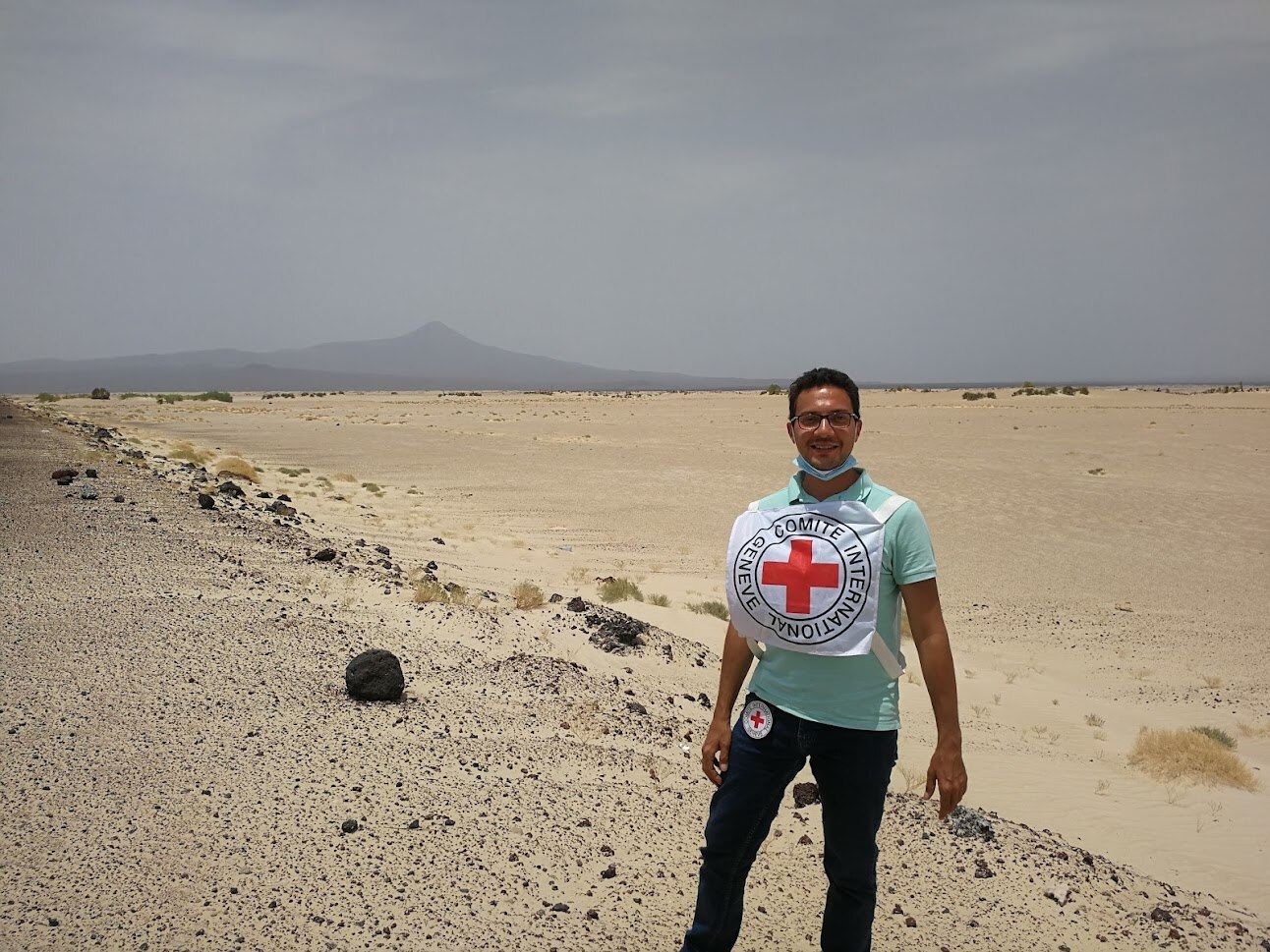Interview with Ahmad Almehdi, Information and Communication Technology (ICT) Engineer from Syria.
Ahmad joined the ICRC in 2013, at a time when the war in his country was escalating and life was getting tougher by the day for ordinary Syrians. “I really wanted to help solve the crisis in my country,” said Ahmad. “But what could I do, I am just in ICT?” He then saw a job opportunity at the ICRC and leaped at the chance to contribute to its humanitarian mission. After joining the organization, Ahmad quickly realized an important fact: information and communication technology (ICT) networks are key to delivering assistance in crisis situations.
“Sometimes I think, what if there were no ICT here? I start imagining myself as a humanitarian field worker, setting off on an assignment to complete crucial tasks for the ICRC. If I went to a remote area where there was no connectivity and no mobile network, I would not be able to inform anyone if something happened to me. So far, no such problem has occurred, and I have managed to do my job properly. However, if I had a valuable report to share with decision-makers, there is no way I could do this without ICT. In other words, you could do things, but there would be no way to transmit the info to either keep you safe or fully achieve your goals.”
The main tasks of an ICT engineer at the ICRC are designing, implementing and maintaining large computer, server, network and telecommunications infrastructures. As Ahmad explained in the interview, this covers various technologies, and ranges from installing server operating systems to designing and implementing networks and establishing various satellite communications and radio networks. And, of course, all the above follows standard project management approaches.
Ahmad provided another important insight into his work: IT engineers have to do most things themselves, with their own hands. “The ICT specialists are the colleagues who one day would be sitting behind their screens, working on complicated, colourful diagrams or system designs. Then the next day, they would be carrying around dirty boxes. We are the team taking care of the ICT solutions from the very beginning through to implementation.”
-

Ahmad is also the focal point for the ICRC’s telecommunications project with the Syrian Arab Red Crescent: “Seeing volunteers or first-aiders in an ambulance or Landcruiser being able to click the button on the radio and transmit their message to the operations room, either to report some information or an incident – for me, this makes it all worthwhile. It is one of the impacts I love, and one of the things that really keeps me going. As I see it, a happy user is already an accomplishment, an impact.”
Working for the ICRC as an ICT specialist is rewarding, but it can sometimes be complex, according to Ahmad. “What is frustrating for us is that, often, things don’t go the way we wanted. For example, we can expect to be able to achieve a certain set-up that we know how to do, but, for some reason, we don’t have the material: it’s either too hard to get in this country or difficult to transport.” Moreover, ICT teams often depend on technologies furnished by external providers. “What can you say to a provider who tells you: ‘I am supplying the internet, and then when the power is out, I have no money to buy a UPS (uninterruptible power supply) system for my set-up, and you will have to wait 20 minutes to get the service back’?” This becomes highly exasperating, and is one reason why ICT specialists need to have a lot of backup solutions. “Backup is our watchword. Sometimes we have a backup to the backup, just because we want to ensure continuity of the services provided. But even these backups are very hard to get.”
Ahmad recently left Syria for a three-month rapid-deployment assignment in Tigray, Ethiopia, to support ICRC operations there. “Sometimes I think of ICT as a collection of challenges. When I arrived in Shire, Ethiopia, I discovered that there was no connectivity at all from any service providers. Only the basic telecommunications means were available, such as slow internet via a satellite. The challenge was that I had to find a solution for the communication needs of 25 users with substantial tasks, who had access to only two devices. They had to organize all their work and conduct all their digital activities in a time slot of 30 minutes. Unfortunately, in conflict areas, you lose the important communications services, and it takes a long time to restore connectivity.”
Ahmad would like to share the following advice with other ICT engineers hoping to work for the ICRC: keep following up on new technologies and keep learning.
“Working as an ICT engineer will expose you to so many challenges, both mental and physical, so you need to be prepared and be able to withstand and handle those challenges, and always come out of them stronger! At the same time, remember that, through working as an ICT specialist with the ICRC, you will be deploying your ICT skills and knowledge to serve humanity and help people in need with your own tools!”
We thank Ahmad for sharing his story with us and for bringing us a big step closer to understanding the complex but indispensable work of an ICT specialist.
Join Our Talent Community
Stay connected by joining our network! Enter your email and tell us a bit about yourself, and we'll keep you informed about upcoming events and opportunities that match your interests.
